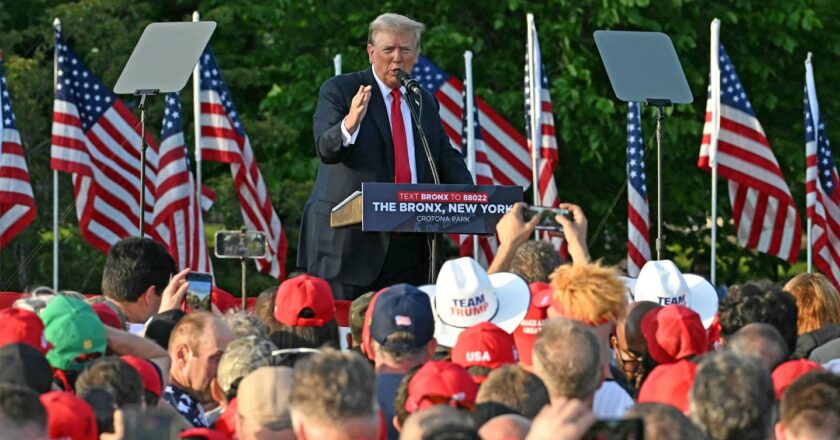For many students at GA, the Ukraine-Russia and Israel-Gaza wars are not just distant conflicts–they are personal. As the US prepares for a new administration, foreign policy decisions feel closer to home than ever.
On Jan. 20, 2025, President-elect Donald Trump will take office, beginning a foreign policy agenda that marks a significant departure from the previous administration. Focused on negotiation in the Ukraine-Russia and Israel-Gaza wars, Trump’s policies promise to change the role of American involvement in international conflicts.
Trump’s “America First” approach to foreign relations emphasizes prioritizing domestic interests over prolonged military intervention and promotes US isolationism.
Trump vows to end the war by bringing Russia and Ukraine to the negotiating table, while President Biden allowed Kyiv to dictate the timing of peace talks while supplying weapons to them for “as long as it takes.”
Negotiating a settlement between Ukraine and Russia will not be an easy feat, as Ukrainian concessions to Russia would likely have to be on the table. Trump, however, can leverage resources like Elon Musk’s Starlink satellite networks, which have proved vital to Ukraine’s war effort, to persuade both parties to begin dialogue.
Contrarily, the Israel-Gaza conflict presents a different set of challenges. It is dangerous to oversimplify the Israel-Gaza conflict as it includes more than just two parties. The complexity rooted in this multifront conflict brings a multitude of areas for US involvement. Trump’s foreign policy on US involvement in Israel-Gaza will include more than just brokering peace talks between Israel and Gaza.
Following the Oct. 7 Hamas attack on Israel and a subsequent retaliatory Israeli strike, Hezbollah, an Iran-backed Lebanese militant group, Israel and Iran have been escalating the conflict.
Trump’s foreign policy differs from Biden’s more balanced approach of supporting Israel as an ally while providing humanitarian aid to Gaza. His administration prioritizes a strong support for Israel, a hallmark of his first term. In 2016, he led the signing of the Abraham Accords, which normalized relations between Israel and the Gulf states, as well as the moving of the US embassy in Israel to Jerusalem, Israel’s capital.
Another difference is Trump’s administration is expected to resume the “maximum pressure” policy on Iran to address Iran’s nuclear program ambitions.
It is important to note that Trump’s foreign policy decisions regarding these two international conflicts also largely depend on the advisors and diplomats he appoints to key roles in foreign policy and national security departments. They will play a significant role in Trump’s foreign policy execution and will define the “how” in delivering his promises regarding conflicts abroad.
The shift in US involvement and Trump’s decisions after his inauguration will be felt domestically. Locally, at GA, students and faculty alike will grapple with supporting each other as a community throughout the policy shifts under a new administration.
“We are a diverse community, and we do have many students with global connections, so sometimes conflicts in other parts of the world can be very personal for our students,” Upper School Head of History Department Dr. Julie Kimmel said. “Sometimes conflicts in other parts of the world speak to the values of students and motivate them to learn, be engaged and to advocate.”
Now a current freshman, Daniel Dashko, who organized an aid drive to Ukraine for the first months of the war during his time in the GA Middle School, shared his personal experience regarding advocacy.
“We raised $17,000, which was the largest fundraiser in GA history. I was really impressed, and we got many medical supplies, food, and more,” Daniel Dashko ‘28 said. “Our friends flew to Poland themselves and delivered it to the towns of Ukraine, so it really helped out.”
In addition to collective support, students and faculty at GA have also reflected on awareness amongst the GA student body.
“I think that we should give more time to international conflicts. The informational forums with Dr. Kimmel and the history department were really helpful, especially the foreign policy one,” Nina Sager ‘26 said. “We could have more Community Times designated to Israel-Gaza and Ukraine-Russia, or just even updates in Morning Meeting.”
The incoming Trump administration will not only redefine America’s role on the international stage but also ripple into the lives of students and faculty at GA. With ties to affected regions and a shared investment in understanding global issues, the GA community will navigate a new era of US international roles with mixed emotions.

